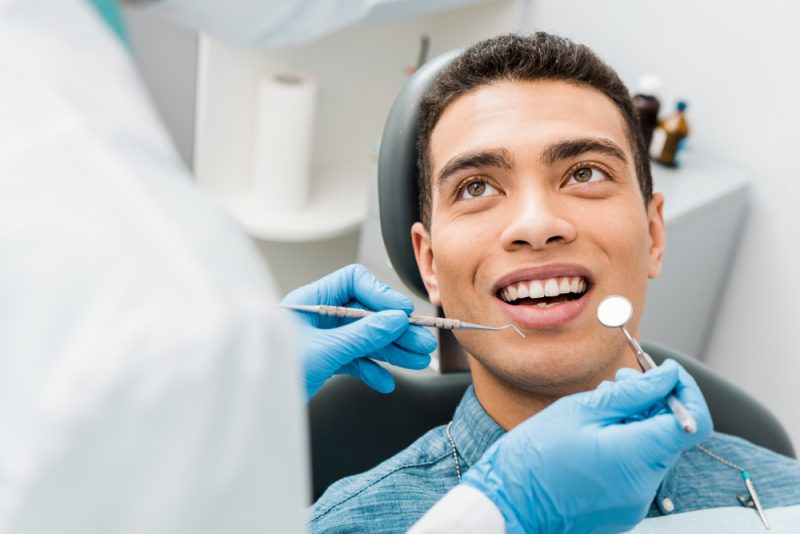
As a dental practice committed to patient care and public health, we recognize that our role extends beyond the operatory. The choices we make—from prescribing antibiotics and pain relievers to managing our environmental footprint—can have far-reaching consequences. Three critical issues facing modern dentistry are antibiotic resistance, the opioid crisis and climate change. Addressing these concerns requires a shift in perspective and a commitment to sustainable, ethical practices.
Antibiotic Resistance: A Call for Responsible Prescribing
Antibiotic resistance is a growing global health crisis, and dentistry plays a significant role in this issue. Dentists prescribe nearly 10% of all outpatient antibiotics in the United States, often for conditions that may not require them, such as viral infections or mild dental pain. Overprescribing and improper use contribute to the rise of antibiotic-resistant bacteria, making infections harder to treat and increasing risks for vulnerable populations.
As dental professionals, we must implement judicious antibiotic prescribing by adhering to evidence-based guidelines. This means:
- Prescribing antibiotics only when necessary, such as in cases of acute bacterial infections or when systemic involvement is evident.
- Educating patients on the dangers of antibiotic overuse and emphasizing proper oral hygiene to prevent infections in the first place.
- Exploring alternative therapies, such as antimicrobial rinses or laser treatments, to manage bacterial infections without resorting to systemic antibiotics.
By making antibiotics a last resort rather than a first-line treatment, we can help curb the spread of resistant bacteria while ensuring that patients receive the safest and most effective care.
The Opioid Crisis: Rethinking Pain Management in Dentistry
Pain management is an essential part of dentistry, yet the opioid crisis has highlighted the dangers of overprescribing narcotics. Studies show that dentists are among the leading prescribers of opioids to young adults, particularly after wisdom tooth extractions. While opioids can be effective in managing severe pain, their potential for addiction and misuse necessitates a more responsible approach.
To mitigate risks, we advocate for:
- Non-opioid pain management strategies, including NSAIDs like ibuprofen and acetaminophen, which have been shown to be just as effective as opioids for dental pain when taken in combination.
- Limited opioid prescriptions, with lower doses and shorter durations, only when absolutely necessary.
- Patient education on the risks of opioid misuse, proper disposal of unused medication and the importance of following prescription guidelines.
- Referral to specialists for patients with a history of substance use disorder to ensure safe pain management approaches.
By prioritizing non-opioid alternatives and engaging in open discussions about pain relief, we can help protect our patients from potential opioid misuse while still ensuring their comfort.
Climate Change and Sustainability: A Greener Future for Dentistry
Beyond patient health, dental practices have a responsibility to reduce their environmental footprint. The healthcare industry is a major contributor to waste and emissions, and dentistry is no exception. From single-use plastics to energy-intensive equipment, many traditional dental practices contribute to pollution and resource depletion.
A shift toward sustainable dentistry can make a meaningful difference. Some key initiatives include:
- Reducing plastic waste by using biodegradable alternatives for disposable items such as cups, gloves and packaging.
- Implementing digital dentistry, such as digital impressions and electronic records, to minimize paper waste and chemical usage from traditional impressions.
- Energy efficiency measures, including LED lighting, water-saving dental equipment and renewable energy sources for powering clinics.
- Eco-friendly sterilization methods, such as steam sterilization instead of chemical-based disinfection, to reduce toxic waste.
By incorporating sustainable practices, we not only help protect the environment but also set a positive example for our community and the broader healthcare field.
The Path Forward: Ethical, Sustainable, and Patient-Centered Dentistry
Antibiotic resistance, the opioid crisis and climate change may seem like global issues beyond the reach of a single dental practice. However, every choice we make—whether it is prescribing an antibiotic, recommending a pain management plan or selecting eco-friendly materials—contributes to a larger movement toward ethical, sustainable healthcare.
At our practice, we are committed to being part of the solution. By embracing evidence-based prescribing habits, responsible pain management and eco-conscious dentistry, we can ensure that our patients receive the best care while also protecting public health and the planet.
As we move forward, we invite our patients and colleagues to join us in this effort. Through education, innovation and collaboration, we can help shape a future where dentistry not only heals but also safeguards the world around us.
Call or Book Appointment Online
Ace Dental Care Alpharetta office: 678-562-1555 – Book Now.
Ace Dental Care Norcross office: 770-806-1255 – Book Now.





